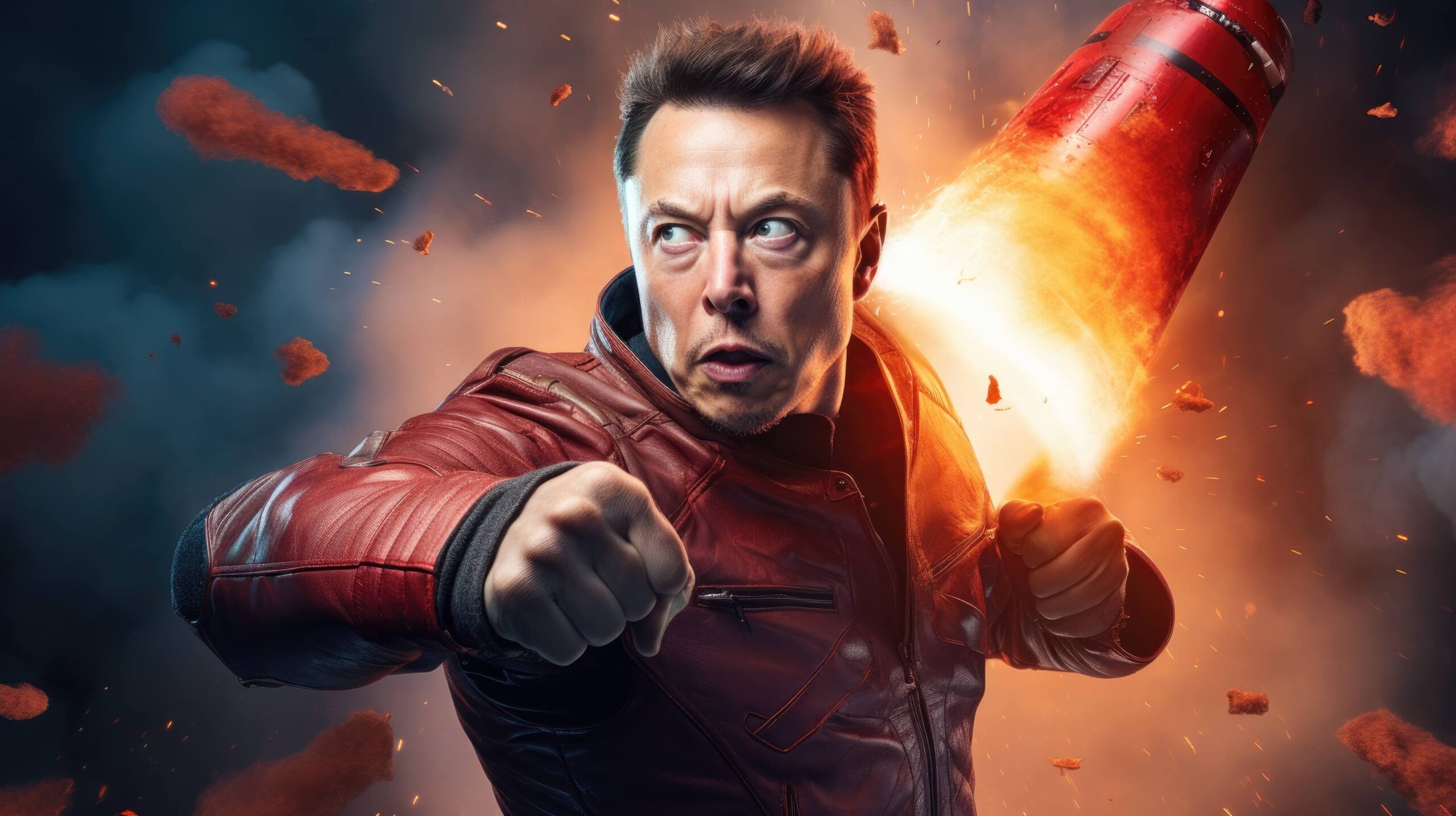The price war wanted by Tesla is bad… for Tesla

The price war unleashed by Musk to remain competitive with Chinese electric cars has caused the residual values of the models to collapse and, therefore, the resale prices, making Tesla an unknown for those who own it in company fleets
The electric car bubble is not only pushing historic manufacturers to postpone their power change projects, many of which should have already been a reality, but it is also damaging those who have never counted on old combustion technology, namely Tesla , which also seems to be the most exposed to the harmful consequences of the price war unleashed during 2023 by its histrionic patron, Elon Musk .
The Texan brand, which started the year on the wave of not too favorable quarterly reports and with the shame of having been overtaken, in terms of cars on tap, by the Chinese manufacturer BYD, now has to deal with several large customers who are disposing of their electric car fleets.
THE (WELL KNOWN) HERTZ TURNS
The most well-known case involved Hertz , which we will talk about shortly as there is no shortage of updates. Now we will limit ourselves to remembering that in 2021 the CEO of the car rental company, Stephen Scherr , had announced the electric turning point through the purchase of 100 thousand Teslas, boosting Musk 's electric car company on the stock market by closing in one fell swoop a 4 billion dollar deal.
At the end of 2023, however, Hertz was forced to warn the Securities and Exchange Commission (the US federal body responsible for supervising stock exchanges) that its industrial strategy had radically changed. More: to be forced to take it back.
The multinational – we read in the formal notice delivered to the SEC – “has taken the strategic decision to sell approximately 20,000 electric vehicles from its US fleet, or approximately a third of the global fleet. The divestitures, which began in December 2023 and are expected to take place in an orderly manner during 2024, will cover various brands and models."
SIXT FOLLOWS FOLLOWING
A reverse gear on the electric car also implemented, in the heart of the Old Continent, by Sixt. The German multinational car rental company, like Hertz, also had big plans for electric cars, expecting to reach 2030 with a fleet of at least 70% made up of BEVs.
Instead, not only will it remain stuck at 6% (current share, divided between Tesla, Mercedes-Benz, BMW, BYD, Nio, Opel, Peugeot and MG) but it has also decided to remove all models from Elon Musk's company from its offer of rental.
The news was announced by the car rental company itself in an email sent to customers and collected by the German newspaper Focus : “We would like to inform you that we are not currently purchasing any more Tesla vehicles. Additionally, we are reducing the number of Tesla vehicles in our rental car fleet,” the message reads.
MUSK FIRST VICTIM OF HIS PRICE WAR?
Sixt's decision seems to have been influenced by the price war that Musk had wanted to unleash at all costs to remain competitive with the Chinese offer: the continuous changes in Tesla's price lists have "put further pressure" on the residual values of the cars (and therefore resale prices).
If we add to this that the demand for electric cars is, for Sixt, "still significantly below that for cars with internal combustion engines", while the "list prices and repair costs are higher" and reflect the disadvantage of "lower residual values" compared to endothermic ones, it is clear why there are "significantly higher management and ownership costs for Tesla vehicles, which – say the car rental giant – we must naturally take into account in our decisions on the fleet from commercial point of view".
YET ANOTHER SLAP TO TESLA COMES FROM SAP
Musk's price war has cost him dearly, not just in terms of dollars burned on each car sold. Pure Sap, another large German company this time active in management software, tired of the roller coaster of the US brand's price lists, has decided to exclude the Texan electric car from its list of suppliers of cars intended for employees.
The reason was explained by fleet manager Steffen Krautwasser to the Handelsblatt newspaper: "Tesla's list prices fluctuate more than those of other manufacturers, which makes planning more difficult and represents an increasing risk for us," said the manager. German motivating the choice of Sap.
HERTZ ALSO SAYS GOODBYE TO POLESTAR
However, Tesla is not the only manufacturer to have to deal with the U-turns of large customers. Hertz, which as we mentioned above continues to reduce its exposure to the electric market, has decided to suspend purchases not only of Tesla cars, but also of Polestar branded cars, an electric division that Volvo has just sold entirely to the Chinese of Geely after the 48% of shares owned by the Swedes lost 83% of their value set at the listing, which took place in 2022.
The same year as the agreement with Hertz which provided for the purchase by 2027 of at least 65 thousand cars of the brand at the time shared by Volvo and Geely and now in the hands of the latter. But for now the Chinese seem to have enough liquidity to continue believing in the dream of the electric car. An increasingly dear and dubious dream.
This is a machine translation from Italian language of a post published on Start Magazine at the URL https://www.startmag.it/smartcity/guerra-prezzi-danno-tesla/ on Sun, 11 Feb 2024 14:40:54 +0000.
